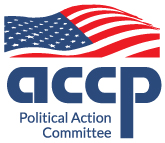
ACCP Washington Update
President Obama Signs Law to Address Drug Shortages
On July 9, 2012, President Obama signed into law the Food and Drug Administration Safety and Innovation Act, which included several provisions to minimize the impact of drug shortages on patients.
The law establishes an early notification system that requires drug manufacturers to notify the U.S. Food and Drug Administration (FDA) of production problems or if a product will be discontinued. Failure to comply with the early notification requirement will trigger a letter from the FDA.
The law also states that the FDA may expedite the review of certain applications and expedite inspections that could help mitigate or prevent a shortage and requires the FDA to maintain a publicly available, up-to-date list of drugs in shortage, including the cause and estimated duration of the shortage.
These provisions were passed as part of a larger legislative package that reauthorizes the Prescription Drug User Fee Act (PDUFA), first enacted in 1992, and the Medical Device User Fee Act (MDUFA), first enacted in 2002.
Since their inception, these programs have helped ensure that the FDA receives the necessary funding to allow a more predictable, streamlined process for drug and device review and to reduce overall review and approval time.
The PDUFA reauthorization also establishes a new user fee program for generic drugs and biosimilar biologics and includes provisions intended to help enhance the safety of the drug supply chain in an increasingly globalized market, increase incentives for the development of new antibiotics, renew mechanisms to ensure that children’s medicines are appropriately tested and labeled, and expedite the development and review of certain drugs for the treatment of serious or life-threatening diseases and conditions.
Click here to read more about PDUFA.
ACCP and the Patient-Centered Primary Care Collaborative
ACCP has reinforced its commitment to the goals of the Patient-Centered Primary Care Collaborative (PCPCC) by joining the PCPCC Executive Committee.
The PCPCC is a 1000-member initiative established in 2006 to advance an effective and efficient health system built on a strong foundation of primary care and the patient-centered medical home (PCMH).
PCPCC members include employers, patients, insurance companies, pharmaceutical companies, and care providers such as physicians, nurses, and clinical pharmacists.
ACCP has been instrumental in advancing the work of the PCPCC Special Interest Group on Medication Management and developing the Medication Management Resource Guide. This resource guide provides a framework for integrating comprehensive medication management within the PCMH and reinforces the need for accompanying payment reform to include payment for comprehensive medication management as an essential professional activity for effective integrated care.
The PCPCC recently launched the second edition of the Medication Management Resource Guide that includes new “Guidelines for Practice and Documentation” for PCMH and accountable care organization (ACO) teams seeking to include comprehensive medication management services.
As part of the Resource Guide launch, the PCPCC hosted a webinar featuring Amanda Brummel, Pharm.D. (Director, Ambulatory Clinical Pharmacy Services, Fairview Pharmacy Services). The webinar was moderated by leaders of the Medication Management Taskforce: Terry McInnis, M.D., MPH (President, Blue Thorn, Inc.), and Ed Webb, Pharm.D., MPH (ACCP Associate Executive Director).
The PCPCC also released its 2012 review of cost and quality results, providing a comprehensive overview of results and data from academic peer-reviewed studies and industry reports on PCMH initiatives across a variety of payers and health systems.
The launch of the report also included a well-attended briefing for congressional staff, members of the press, and other interested stakeholders held in the Rayburn House Office Building on Capitol Hill.
Click here to download a copy of the report, titled “Benefits of Implementing the Primary Care Patient-Centered Medical Home: A Review of Cost and Quality Results, 2012.”
Click here to view the PCPCC webinar titled, “Successful Incorporation of Comprehensive Medication Management into PCMH and ACO Coordinated Care Models.”
ACCP Urges Medicaid to Include Medication Management in Integrated Care Models
ACCP has called on the Centers for Medicare & Medicaid Services (CMS) to include medication management in proposed integrated care models.
In response to guidance from CMS to state Medicaid on designing and implementing care delivery and payment reforms, ACCP called on the agency to include comprehensive medication management as part of a list of activities identified as key to improving health, improving care, and reducing costs within Medicaid programs.
ACCP, together with the College of Psychiatric and Neurologic Pharmacists (CPNP), wrote to the Director of the Center for Medicaid and CHIP Services to highlight the importance of including comprehensive medication management services in any integrated care model in order to optimize the use of medications that prevent and control disease by directly linking their use to clinical goals and outcomes in a patient-centered fashion using a team-based primary care approach.
CMS issued the guidance to states as part of the process of implementing the Affordable Care Act. The health care reform law, upheld earlier this year by the Supreme Court, includes a variety of initiatives aimed at moving delivery systems from volume-based, fee-for-service (FFS) reimbursement to integrated care models with financial incentives to improve beneficiary health outcomes.
These initiatives include patient-centered medical/health homes, ACOs, ACO-like models, and other health care delivery and financing models that emphasize person-centered, continuous, coordinated, and comprehensive care.
ACCP’s letter to CMS praised the agency for issuing the guidance but urged that it recognize the importance of optimizing medication use as part of the reform process and include comprehensive medication management as a listed activity to achieve the goals of better care, better outcomes, and lower costs.
Click here to read the CMS Guidance to States.
Click here to read ACCP’s letter to CMS.

ACCP Political Action Committee (ACCP-PAC) and the 2012 Elections
The upcoming November elections will allow ACCP to help elect members of Congress who share our vision for the roles of clinical pharmacists in an evolving health care delivery system.
Beyond the 2012 elections, ACCP is committed to a targeted legislative strategy designed to achieve recognition and payment for comprehensive medication management services provided by clinical pharmacists in the evolving Medicare program.
We also remain focused on developing, advancing, and positioning clinical pharmacists through a variety of public and private initiatives, including the Patient-Centered Primary Care Collaborative (PCPCC).
As health care delivery continues to evolve, it is more vital than ever that we help elect congressional leaders who understand and value the role of the clinical pharmacist as part of a patient-centered, multidisciplinary team.
ACCP-PAC Fundraising Challenge
The success of the ACCP-PAC depends entirely on the support of ACCP members. Although several PACs represent various segments of the pharmacy profession, ACCP has the only PAC dedicated to advancing the practice of clinical pharmacy.
Unlike the Frontiers Fund, the ACCP-PAC cannot accept contributions from PRNs. All PAC contributions must be made by individuals from personal funds.
With more than 12,000 members eligible to contribute to the PAC, ACCP is in a position to become one of the most prominent pharmacy PACs in Washington. To do this, we need the widespread support of our membership.
If each ACCP member contributed just $25, the ACCP-PAC would raise $300,000. Please consider donating at least $25 to the ACCP-PAC. Click here to support your PAC today!
ACCP-PAC Governing Council
The ACCP-PAC is directed by the PAC Governing Council, which provides oversight and strategic leadership for the operations of the ACCP-PAC.
The ACCP-PAC Governing Council consists of the following ACCP members:
Chair: Leigh Ann Ross, Pharm.D., BCPS
Treasurer: Gary R. Matzke, Pharm.D., FCP, FCCP
Secretary: Michael S. Maddux, Pharm.D., FCCP
Member: Anna Legreid Dopp, Pharm.D.
Member: Terry Seaton, Pharm.D., FCCP, BCPS (Board of Regents Liaison)
ACCP funds the administrative expenses associated with operating the PAC, so all member contributions go directly to support pro-clinical pharmacy candidates.
Click here to support your PAC today!
2012–2013 ACCP-ASHP-VCU Congressional Healthcare Policy Fellow Program
The ACCP-ASHP-VCU Congressional Healthcare Policy Fellow program was launched in 2006 under the leadership of Gary R. Matzke, Pharm.D. (VCU School of Pharmacy), Ed Webb, Pharm.D., MPH (ACCP), and Brian Meyer (ASHP). The program was developed to provide active learning in multiple policy environments.
The initial month of the program consists of an orientation curriculum put on by faculty of the VCU and the government affairs staff of ACCP and ASHP. Fellows then spend 1 year on Capitol Hill as part of the staff of a congressional committee or the personal staff of a U.S. senator or representative.
The program provides a unique health care policy learning experience that allows the fellow to make practical contributions to the effective use of scientific and pharmaceutical knowledge in government decision-making.
The fellow is also expected to undertake a wide array of responsibilities in the congressional office that he or she serves, including researching and writing briefs on health care issues, assisting with policy decisions, drafting memoranda, and planning, organizing, and contributing to the management objectives of the office.
Applications for 2013–2014 Pharmacy Healthcare Policy Fellow Program:
Interested candidates should visit the Pharmacy Healthcare Policy Fellow program’s website for more information and instruction on submitting an application.
ACCP at the National Conference of State Legislatures
For more than a decade, ACCP, as part of the Alliance for Pharmaceutical Care, has participated in the Annual Legislative Summit of the National Conference of State Legislatures (NCSL).
The Alliance for Pharmaceutical Care is a consortium of eight national pharmacy groups, working together to educate the public and policy-makers about the pharmacist’s role in improving patient outcomes.
NCSL is a bipartisan organization that serves the legislators and staffs of the nation’s 50 states, providing research, technical assistance, and opportunities for policy-makers to exchange ideas on the most pressing state issues.
The NCSL Legislative Summit brings together 5000 legislators, legislative staffers, families, government officials, business representatives, union members, foundation representatives, and others interested in public policy to discuss issues including health care, the economy, transportation, education, human services, energy, and the environment.
The centerpiece of the alliance’s outreach is “Pharmacist Central,” an exhibit where meeting attendees can experience firsthand the wide range of patient care services that pharmacists provide, including health screenings, patient counseling, and medication reviews.
Visitors to Pharmacist Central also gain insight into the valuable initiatives and programs using the medication expertise of pharmacists that increase access, reduce costs, and improve overall patient care and health care outcomes.
The alliance is made up of the following national pharmacy organizations:
- Academy of Managed Care Pharmacy (AMCP)
- American Association of Colleges of Pharmacy (AACP)
- American College of Clinical Pharmacy (ACCP)
- American Pharmacists Association (APhA)
- American Society of Health-System Pharmacists (ASHP)
- National Alliance of State Pharmacy Associations (NASPA)
- National Association of Chain Drug Stores (NACDS)
At the 2012 NCLS Legislative Summit in Chicago, the alliance offered the following services:
- Medication reviews and counseling
- Cholesterol screening
- Diabetes screening
- Osteoporosis/bone density testing
The alliance plans to participate in the 2013 NCSL Legislative Summit in Atlanta.
Click here to learn more about the Alliance for Pharmacist-Provided Patient Care. Click here to learn more about NCSL.
Contact Us
For more information on any of ACCP’s advocacy efforts, please contact John K. McGlew, Associate Director, Government Affairs, American College of Clinical Pharmacy, 1455 Pennsylvania Avenue NW, Suite 400, Washington, DC 20004-1017; (202) 621-1820; [email protected].